- Home
- M. L. Buchman
Where Dreams Books 1-3 Page 2
Where Dreams Books 1-3 Read online
Page 2
A high wave crashed into the rocks with a thundering shudder that ran up through the heels of her boots and whipped a chill spray into the wind. Salt water on suede—Daddy now owed her a new coat as well.
Cassidy edged along the foundation until she found a calmer spot, a little windshadow behind the lighthouse where the wind chill ranked merely miserable rather than horrific on the suck-o-meter. Squatting down behind one of the breakwater’s boulders helped a tiny bit more. She peeled off her thin leather gloves and blew against her fingertips to warm them enough so that they’d work. Once she’d regained some modicum of feeling, she pulled out the letter.
She couldn’t feel his actual writing, though she ran her fingertips over it again and again. His Christmas present: a five-dollar calendar of Washington lighthouses from the hospital gift store and a dozen thin envelopes wrapped in a old x-ray folder with no ribbon, no paper.
In the end he’d foiled her final Christmas hunt. It had been her great yearly quest—the ultimate grail of childhood—finding the key present before Christmas morning. There was no present he could hide that she couldn’t find. Not the Cabbage Patch Kid when she was six; the one she’d had to hold with her arm in a cast after falling off the kitchen stool she’d dragged into her father’s closet to aid the search. Not the used VW Rabbit he’d hidden out in the wine shed thinking that she never went there anymore. And she didn’t, except for some reason that day before her eighteenth Christmas.
A part of her wanted to crumple the letter up and throw it into the sea. It was too soon. She didn’t want to face the pain again.
Too soon.
She looked out at the crashing waves. With a sudden howl of wind, a slash of spray roared by mere feet from her face, barely averted by the staunch tower of the lighthouse. Clearly someone wasn’t happy about her desire to avoid the task at hand.
The rest of her body did what it supposed to do. The dutiful daughter opened the envelope and pinned the letter against her thigh so that she could read the slashing scrawl that was her father’s. Even as weak with sickness as he must have been, it looked scribed in stone. His bold-stroke writing gave the words a force and strength just as his deep voice had once sounded strong enough to keep the world at bay for a little girl.
Dearest Ice Sweet,
He’d always called her that. Icewine. The grapes for icewine were traditionally harvested on her birthday, December twenty-first. “The sweetest wine of all, my little ice sweet girl.” By the age of five she knew about the sugar content of icewine, Riesling, Chardonnay, and a dozen others. By eight she could identify scores of vintages just by the scent of the cork and hundreds by their logos though she’d yet to taste more than thimblefuls of watered wine at any one time.
Cassidy stared at the waves digging angrily at the rocks not far below her feet. The wind dragged tears from her eyes even as she struggled to blink them dry. She hadn’t cried in a long time and she was damned if she was going to start now simply because she was cold and there was a hole in her heart.
Just seven days. She’d looked away for a one moment seven days ago—and he was gone. Christmas morning. He’d hung on long enough to tell her of his last present, hidden in plain sight in the used x-ray folder on the bedside table. A long list of crossed-out names had shuttled films back and forth across Northwest Hospital.
I bought this calendar the day you moved back to Seattle. Marked in all the “dates.” Now I know that I won’t get to go with you. I’m sorry to leave you so young.
“I’m twenty-nine, Daddy.” But it felt young. Her birthday gone unremarked because he’d never woken that day so close to his last.
The hole in her heart was so broad that it would never be filled. He’d only been gone a week. Cremated, waked, and ashes spread on his beloved vineyard by the permission of the new owners. They’d owned his vineyard for five years, but still, they were the new ones. It wasn’t right—them living in the place where her father belonged. She could picture him so easily striding among the vines, rubbing the soil in his palm, showing his only child the wonders of the changing seasons, the lifecycle of a grapevine, and the nurturing of honeybees.
For our first “date” I will just tell you how proud I am of you. My daughter took a vintner’s education and turned herself into the best food-and-wine columnist ever.
He always believed in her. Always rooted for her. Her number one fan had always cheered her on. He’d been the same way with her boyfriends: welcoming them when they arrived, consoling her when they were gone, and offering no harsh judgment—not even about the boys she should have avoided like a bottle of rotgut Thunderbird.
The wind rattled the paper, drawing her attention back to the letter.
You are so like me. You figure out what feels right and you just go do it; damn the consequences. I could never fault you for leaving. I always did what I wanted, too. Saw it and went right for it, no discussion needed, always wearing perfect blinders that blocked out everything else. You got that from me. You come by your whimsical stubbornness honestly, Ice Sweet.
But he was wrong, she wasn’t stubborn. It had taken years of careful planning for her to reach this far. Even her move to Seattle to be with him had been calculated, though she never told him about that. She shifted on the hard rock that was in imminent danger of freezing her butt.
Her father kept apologizing for all the wrong things. Seattle had ended up being a great career move, or was finally becoming one as she’d hoped. In New York, she worked as one of a thousand food and wine reviewers. Okay one in fifty—maybe even one in twenty-five, she was damn good—but there were only three women at that level. The other twenty-two were members of longstanding in the old boys’ club.
“We’re looking for someone with a more refined palate.” Read that as someone who was “male.”
She’d let go of her sublet in Manhattan when she’d found out her father was sick. Bought a condo in Seattle to be near, but not too near him on Bainbridge Island. Helped him move into the elder-care by Northgate when he couldn’t care for himself any longer and from there to Northwest Hospital where she’d lived out his last two weeks in the chair by his bed.
The Village Voice dropped her the day she left Manhattan. That had hurt as they’d run her first-ever review, a short piece on Jim and Charlie’s Punk and Wine Bistro. Jim and Charlie’s was still there, partly thanks to that review that was still framed and hung in the center of bar’s mirror.
But in Seattle she was rapidly rising to the very upper crust of the apple pie. Her reviews ran in every local paper. The San Francisco Chronicle had picked her up for their Travel section the next week making it difficult to stay grumpy about the loss of The Voice. Then AAA took her national with a regular column for their magazines. From there, it hadn’t been a big step to national syndication. Six more months in New York and she’d have still been grinding her way up from the twentieth spot to the nineteenth. She was going to bypass the lot of them by skipping right past the “required” and sitting at the head table herself.
Her father’s cancer had brought at least that much good.
Now if only it hadn’t taken him with it.
And she wasn’t whimsical no matter what he thought. Her dad had always described her mother as the organized one. And Cassidy had done her best to be just like her. You didn’t become a top columnist by following the wind all willy-nilly.
If she didn’t hurry, she was going to freeze in place. She chafed at her legs with one hand and then the other, but it didn’t help. She was cold past any cure less than a piping hot bath. She peeked ahead in the letter, just two and a bit more pages. She turned to the second sheet, barely managing not to lose the first to the wind.
I started the vineyard after my tour in Vietnam. Got signed off the base and walked out of San Francisco right across the Golden Gate. No home, no job, and no one to go back to. I headed up into the hills; didn’t even know w
hy or where I was. I walked and hitched ‘til dark, slept, woke with the light, and kept moving.
One morning, I woke up in a field close to a rotting, wooden fencepost, looking at the saddest little vineyard you could imagine. Poor vines dying of thirst. I found an old bucket and started watering them from a nearby stream. An old man came out to lean on the fence. Watched me quite a while, a couple hours maybe. I didn’t care about him. Those vines were the first thing I’d cared about in a long, long time.
“You want ‘em?” the old guy asked. “Five hundred bucks and they’re yours.”
I don’t even remember how it happened. One minute my final pay was in my pocket, then in his. Later on, other vets drifted in. I charged them fifty bucks to join. Five of us worked the land and recovered those vines. That was the start of the thirty acres of Knowles Valley Vineyard.
She’d never heard how his first vineyard started. Didn’t even really know where it was, somewhere in the hills of northern California. Though he might have ambled all the way to Oregon for how much she knew.
Walk the year with me. Let’s take our time. My past is mine, but your future is not. That’s only up to you. That I leave you to walk alone, though I’ll warn you that it’s a rough trail often over rocky soil. But keep your head high and you’ll go far.
Whatever happens, know that I love you. I’m so proud of you.
Love you Ice Sweet,
Vic
Vic. He always signed his letters “Vic.” Never what she’d always called him. “Daddy.”
I could never fault you for leaving.
Yet between the lines that’s just what he did. Nothing on the backs of any of the pages. She worked to refold the pages in the wind. The damp chill was now worse inside than outside her skin. The weather was a nasty, temperamental thing, clawing to reach her; this pain she felt right down to deep inside.
“No, you’re imagining things, Cass. You think too much. Get your head out of your own butt.” And she mostly did. One of the many gifts Vic Knowles had given her, the ability to be clear about her own actions and reactions.
He’d financed her dream of getting away from the rain capital of the Pacific Northwest. He’d paid for her college in full and cooking school after that. It was only while cleaning up his papers this last week that she saw how close it had come to breaking him. He’d just made it a natural assumption that she’d go to college and he’d pay. Just like her mom who had a degree in economics from Vassar. He’d always talked about how smart Cassidy’s mother was.
“Just look in the mirror, Ice Sweet, and you’ll see she was the most beautiful woman you can imagine. I miss her every day.”
She tried to see, but all she ever saw was herself. She did better without the mirror. Even now, looking north along the steep, conifer-clad shore and over the heavy waves she could imagine her father happy. A woman with soft brown hair who did and didn’t look like Cassidy at his side.
He hadn’t gone to college himself, not even high school. His past was little more than a few facts she’d winnowed over the years. His own dad had left before he could remember. He’d dropped out of third grade to help his mother run the grocery store. They were desperately poor when she died. Then he’d gone to Vietnam at eighteen as the only way to make a living wage. And walked to a vineyard. But he gave Cassidy that gift of education as if it was no hardship to him.
Did he now begrudge her that past? The future he never had.
No. That didn’t make any sense. He hadn’t thought about the money, he’d invested in his dreams for her. She was just going nuts from missing him so much and angry at him for being dead.
“Useful, Cass, real useful.”
To prove her sanity, she forced the rumpled letter back into the envelope, as neatly as possible in the midst of the maelstrom, and she forced that back into her leather pack.
Her father, the self-educated man, also the most well-read man she’d ever met. But she’d learned early on to do her math and science homework before he came home from the fields. His frustration at being unable to help her there had always been a strain.
Cassidy’s mother was a single solitary memory. It had been a night as foul-tempered as this day. Mama had been standing in the open doorway of the house, leaving to answer a call to the hospital. Odd, Daddy had never mentioned her nursing school days, but talking about her had always hurt him, so Cassidy had learned not to ask.
The wind at the door had blown her mother’s long hair across her face as she leaned on Daddy’s arm. That was Cassidy’s only memory of Adrianne Knowles, a woman with no face. Then Bea Clark had rushed in from next door to sit with her.
She and Daddy did talk about the many books though. He had sharpened her mind as they puzzled them out together. Ayn Rand piled next to Shakespeare, Heinlein beside Hugo, and Dickens leaning against a biography of Jimi Hendrix. Their house was always awash in books. And the massive collection of wine books, thumbed again and again by both of them, the only books to have a proper bookcase, had sat in the place of honor in the living room. Everything else jumbled into stacked wooden crates, mounded on tops of dressers, and enough on the dining table to make it a battle to find room for their two plates.
The chill spray of a particularly large wave spattered her with a few drops, and the next with a few more. The tide must be coming in.
She scrambled from her hiding place and rose back into the wind which threatened to topple her off the breakwater and down into the roaring waves. She forged her way back to the parking lot. The wind tore at her backpack and thumped it against her spine. The camera. Right.
She squatted to get out of the wind and pulled out her trusty point-and-shoot. The wind nearly blinded her when she turned back into it. Her hair swirled about her head, completely in the way.
A sailboat. Two lunatics in a sailboat were off the point of land. A cobalt-blue hull climbed out of one wave, pointing its bow to the sky, and then plunged down and buried its nose in the front of the next wave before rising again in a great arc of spray and green water. Huge, maroon sails snapped in the wind, loud enough to sound like a gunshot above the roaring surf.
Whoever the captain was, he and his buddy were crazy. They must both be male because no woman in her right mind would ever go out into a storm like this. But if they wanted to sail right into her picture, she wasn’t going to complain; it was a beautiful boat. At the perfect moment she snapped the photo then turned for the woods and the long trail home.
# # #
“Hey Angelo. Take the helm.” Russell had to shout to be heard above the sharp crack of the dark-red mainsail.
“Got it, Captain.” His friend grinned at him as he grabbed the tiller and they slid across the waves off the West Point lighthouse.
Russell let out a whoop as they rode high over a crest, paused, and went briefly weightless before they plunged into the next trough. The Lady Amalthea had been built for weather like this. At first Russell had been afraid of such heavy weather. His parents’ boat, Julia—a twenty-eight footer they kept at the summer place on Fire Island—would have had a very tough time in this sea. At fifty feet long, the Lady just ate it up; she practically flew over the wavetops.
He ducked below and grabbed his camera.
Belowdecks would definitely need some work. Okay, a lot of work. The only decent thing in the old gal was the forward stateroom. Russell could hardly wait. The marine surveyor had pronounced both the hull and mast sound and that was all he cared about. The interior just needed to be torn out and redone. He’d have to figure out a better system for diesel than that old beer keg strapped to the engine room wall. Get her plumbed for fresh water and wired with more than an old car battery charger. But she really had potential. Most importantly, the Lady sailed like there was no tomorrow.
He scrambled back on deck and started snapping pictures. Angelo posed in his foul weather gear, the yellow slicks and ora
nge float jacket making him look as much like a clown as a sailor. He made some foolish faces to go with it and Russell captured them for posterity. He’d send the most ridiculous one to Angelo’s mother, Maria, just to shame him on his next visit home.
Then he aimed at the lighthouse and snapped off a couple dozen images. He didn’t even bother to check the LCD, they’d be good. The lighthouse perched on the rocky edge of Discovery Park was too photogenic a place for bad pictures. He bracketed the exposure and focus just to be sure. It was perfect. Steep, wooded cliff rising up behind the pristine white and red of the squat lighthouse. He’d crop the image to avoid the sprawl of the treatment plant just around the rocks to the north.
He tried to get the rhythm of the lighthouse’s flash: alternating white and red every ten seconds. He got them both then stowed the camera away.
“Ready about?” Angelo called from above.
Russell scrambled back on deck, checked the lines, and preset the port jib sheet next to the winch. The line felt oversized but solid in his hand, the rope was a half-inch thick just to handle the sail, the same size as the anchor line on his parents’ Julia.
“Ready.”
“Helm’s a lee!” Angelo threw over the tiller and the Lady lifted up her bow and spun like a dancer.
Russell waited until the very last second before releasing the starboard line and heaving in on the port one. Moments later the line snapped taught and would have flipped him overboard if he hadn’t let go, a rope burn creased his palms with searing heat.
Angelo was laughing his head off. “And you, Mister Great Sailor, are going to solo around the world?”
“Shaddup, Angelo. It was your idea.”
“I gave you a hundred ideas on Thanksgiving Day, I figured you wouldn’t listen to any of them like usual, especially not this one. What about being a scuba instructor off Fiji with all of the cute tourists?”

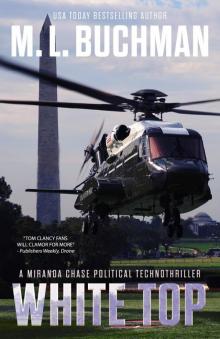 White Top
White Top Thunderbolt
Thunderbolt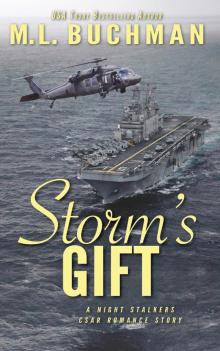 Storm's Gift
Storm's Gift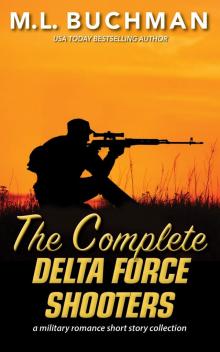 The Complete Delta Force Shooters
The Complete Delta Force Shooters At the Quietest Word (Shadowforce: Psi Book 2)
At the Quietest Word (Shadowforce: Psi Book 2) At the Slightest Sound
At the Slightest Sound Dilya's Christmas Challenge
Dilya's Christmas Challenge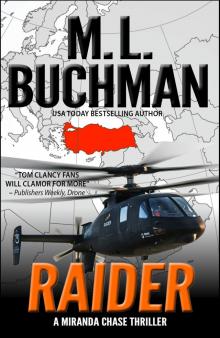 Raider
Raider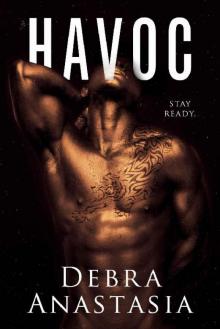 Havoc
Havoc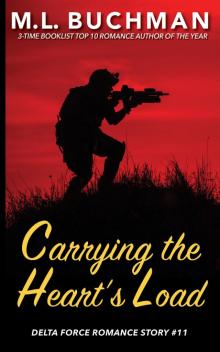 Carrying the Heart's Load
Carrying the Heart's Load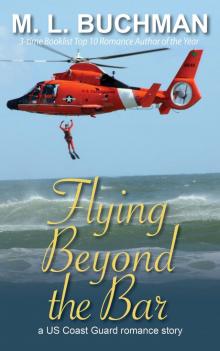 Flying Beyond the Bar
Flying Beyond the Bar Firelights of Christmas
Firelights of Christmas Where Dreams Are Well Done
Where Dreams Are Well Done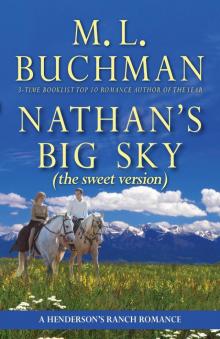 Nathan's Big Sky
Nathan's Big Sky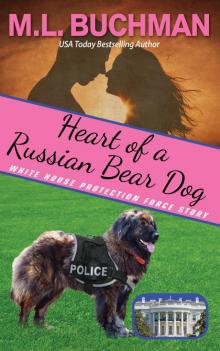 Heart of a Russian Bear Dog
Heart of a Russian Bear Dog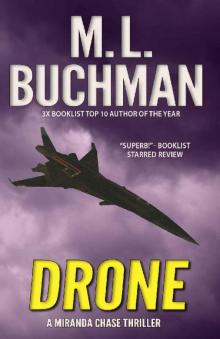 Drone: an NTSB / military technothriller (Miranda Chase Book 1)
Drone: an NTSB / military technothriller (Miranda Chase Book 1)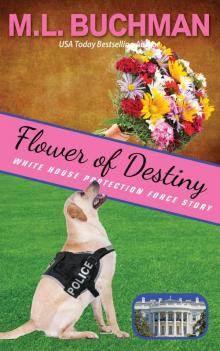 Flower of Destiny
Flower of Destiny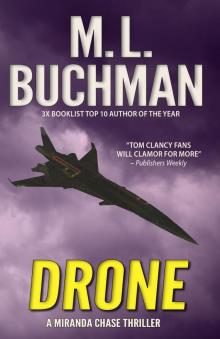 Drone
Drone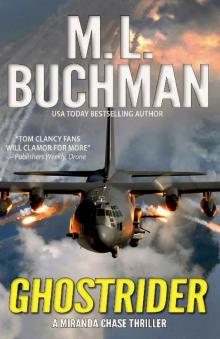 Ghostrider: an NTSB-military technothriller (Miranda Chase Book 4)
Ghostrider: an NTSB-military technothriller (Miranda Chase Book 4)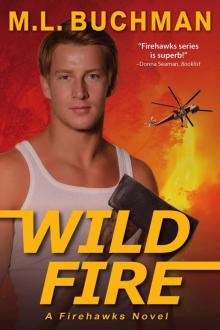 Wild Fire
Wild Fire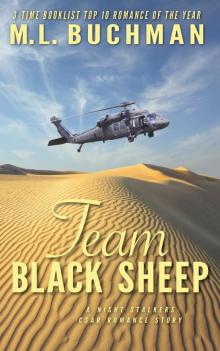 Team Black Sheep
Team Black Sheep The Complete Delta Force Warriors
The Complete Delta Force Warriors At the Quietest Word
At the Quietest Word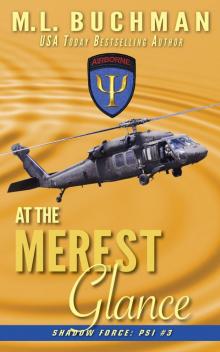 At the Merest Glance
At the Merest Glance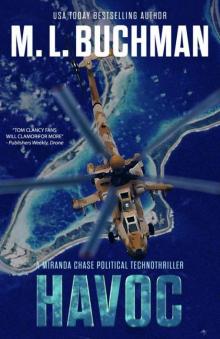 Havoc: a political technothriller (Miranda Chase Book 7)
Havoc: a political technothriller (Miranda Chase Book 7)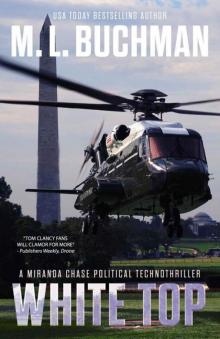 White Top: a political technothriller (Miranda Chase Book 8)
White Top: a political technothriller (Miranda Chase Book 8)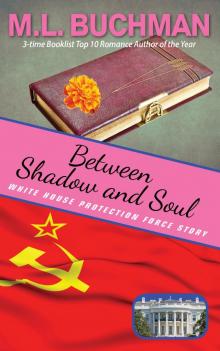 Between Shadow and Soul
Between Shadow and Soul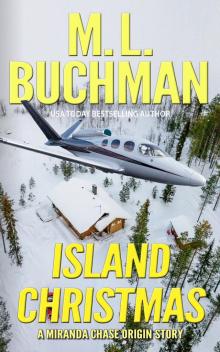 Island Christmas
Island Christmas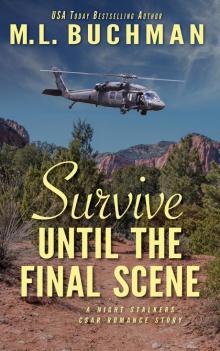 Survive Until the Final Scene
Survive Until the Final Scene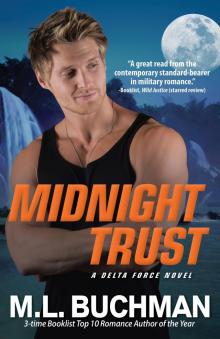 Midnight Trust
Midnight Trust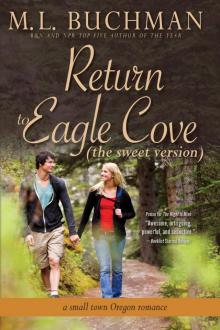 Return to Eagle Cove
Return to Eagle Cove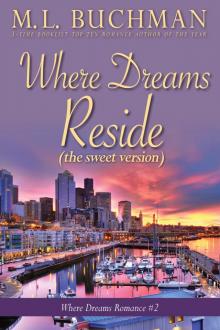 Where Dreams Reside
Where Dreams Reside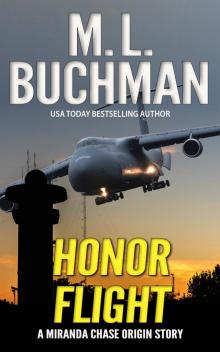 Honor Flight
Honor Flight Where Dreams Are Sewn
Where Dreams Are Sewn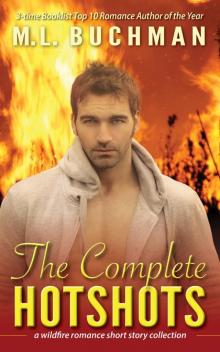 The Complete Hotshots
The Complete Hotshots Condor
Condor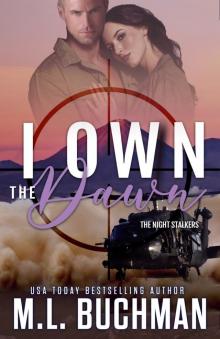 I Own the Dawn
I Own the Dawn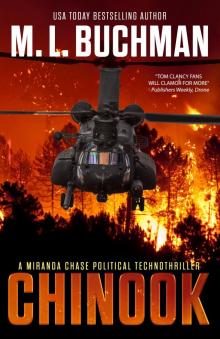 Chinook
Chinook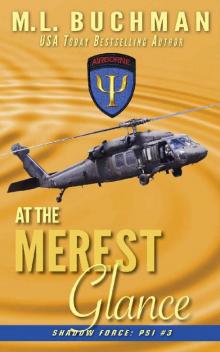 At the Merest Glance: a military paranormal romance (Shadowforce: Psi Book 3)
At the Merest Glance: a military paranormal romance (Shadowforce: Psi Book 3)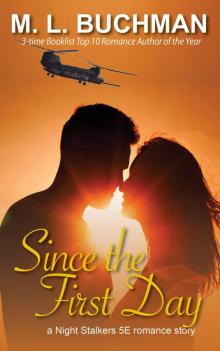 Since the First Day
Since the First Day Thunderbolt: an NTSB / military technothriller (Miranda Chase Book 2)
Thunderbolt: an NTSB / military technothriller (Miranda Chase Book 2)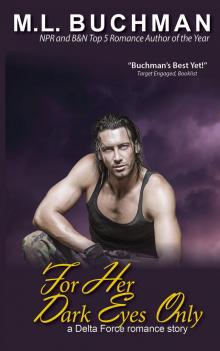 For Her Dark Eyes Only
For Her Dark Eyes Only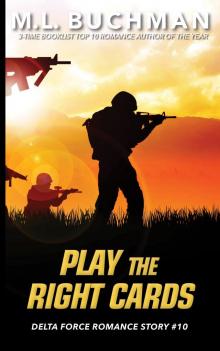 Play the Right Cards
Play the Right Cards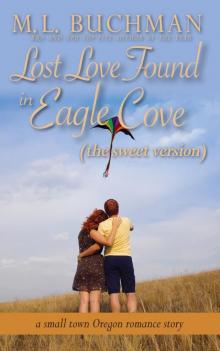 Lost Love Found in Eagle Cove
Lost Love Found in Eagle Cove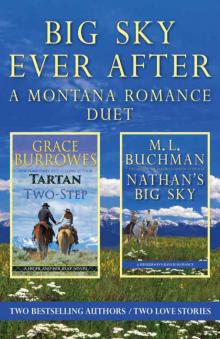 Big Sky Ever After: a Montana Romance Duet
Big Sky Ever After: a Montana Romance Duet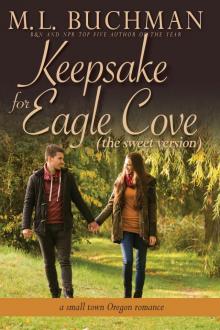 Keepsake for Eagle Cove
Keepsake for Eagle Cove At the Clearest Sensation
At the Clearest Sensation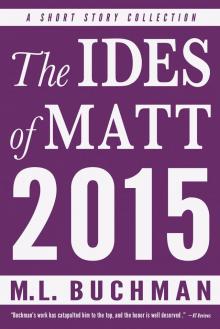 The Ides of Matt 2015
The Ides of Matt 2015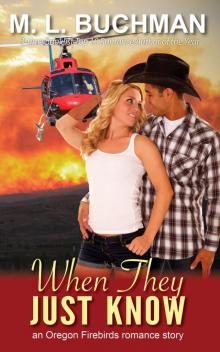 When They Just Know
When They Just Know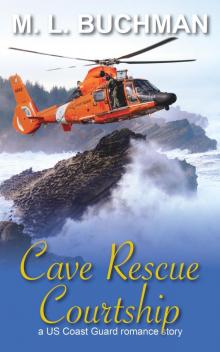 Cave Rescue Courtship
Cave Rescue Courtship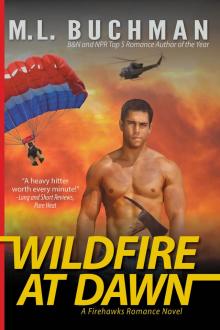 Wildfire at Dawn
Wildfire at Dawn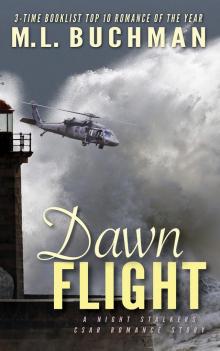 Dawn Flight
Dawn Flight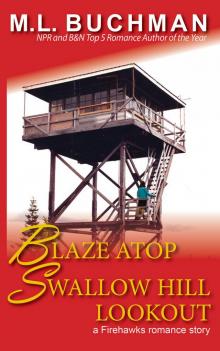 Blaze Atop Swallow Hill Lookout
Blaze Atop Swallow Hill Lookout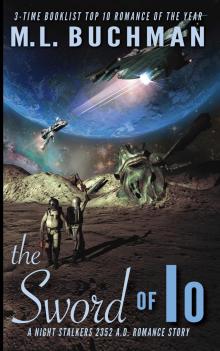 The Sword of Io
The Sword of Io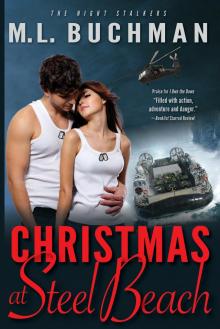 Christmas at Steel Beach
Christmas at Steel Beach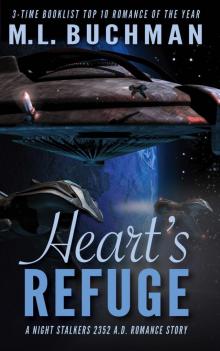 Heart's Refuge
Heart's Refuge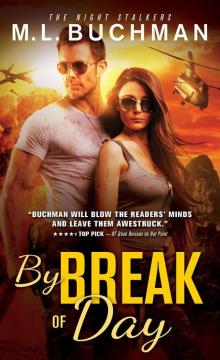 By Break of Day (The Night Stalkers)
By Break of Day (The Night Stalkers)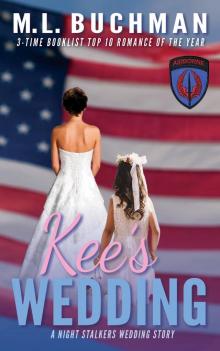 Kee's Wedding
Kee's Wedding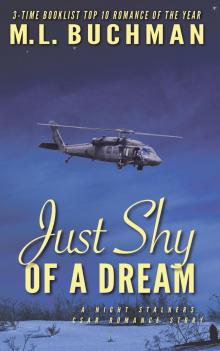 Just Shy of a Dream
Just Shy of a Dream Path of Love
Path of Love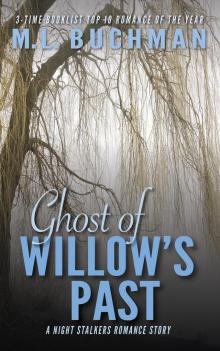 Ghost of Willow's Past
Ghost of Willow's Past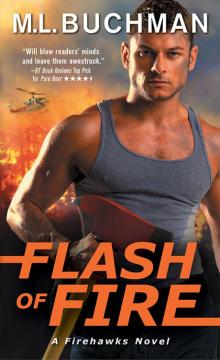 Flash of Fire
Flash of Fire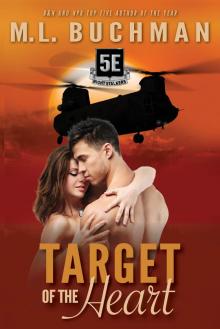 Target of the Heart
Target of the Heart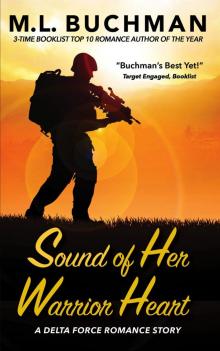 Sound of Her Warrior Heart
Sound of Her Warrior Heart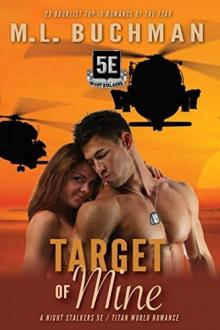 Target of Mine: The Night Stalkers 5E (Titan World Book 2)
Target of Mine: The Night Stalkers 5E (Titan World Book 2)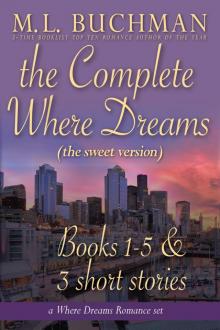 The Complete Where Dreams
The Complete Where Dreams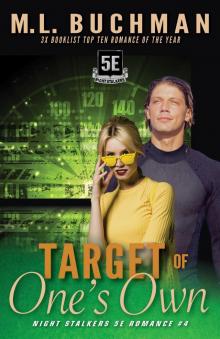 Target of One's Own
Target of One's Own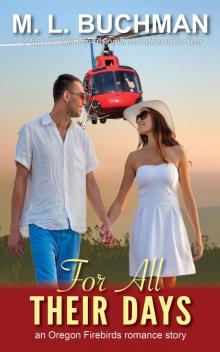 For All Their Days
For All Their Days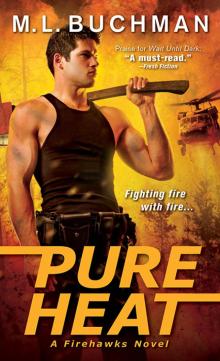 Pure Heat
Pure Heat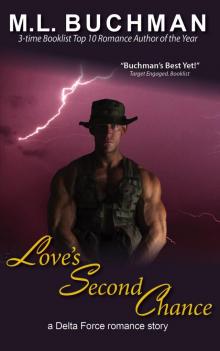 Love's Second Chance
Love's Second Chance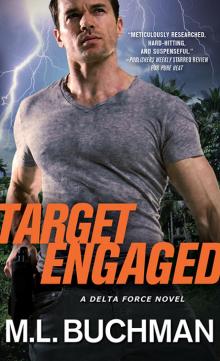 Target Engaged
Target Engaged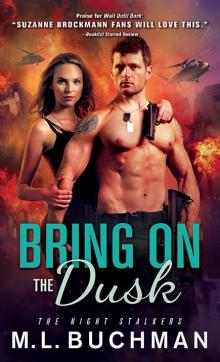 Bring On the Dusk
Bring On the Dusk Wait Until Dark (The Night Stalkers)
Wait Until Dark (The Night Stalkers)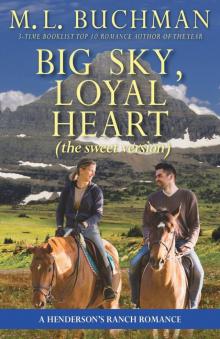 Big Sky, Loyal Heart
Big Sky, Loyal Heart Welcome at Henderson's Ranch
Welcome at Henderson's Ranch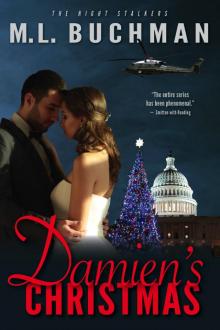 Damien's Christmas
Damien's Christmas Flight to Fight
Flight to Fight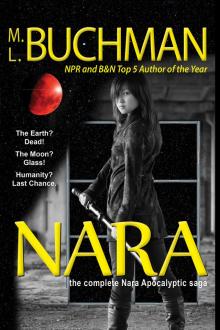 Nara
Nara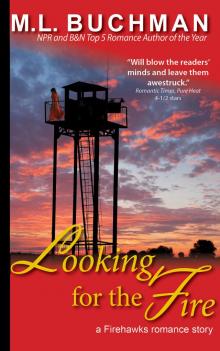 Looking for the Fire
Looking for the Fire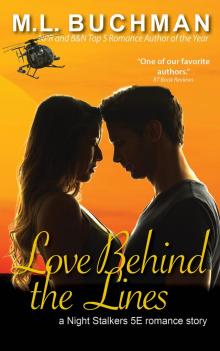 Love Behind the Lines
Love Behind the Lines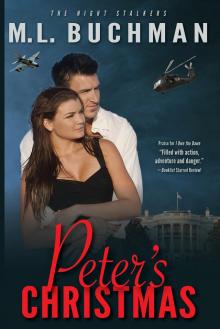 Peter's Christmas
Peter's Christmas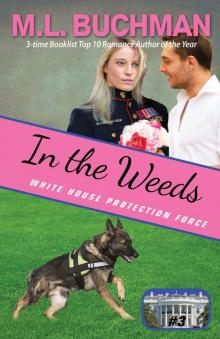 In the Weeds
In the Weeds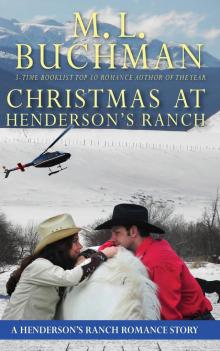 Christmas at Henderson's Ranch
Christmas at Henderson's Ranch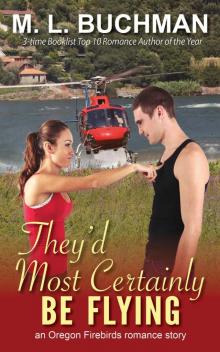 They'd Most Certainly Be Flying
They'd Most Certainly Be Flying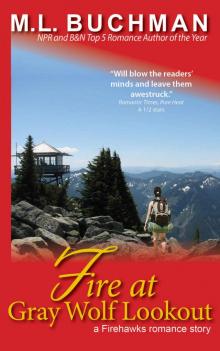 Fire at Gray Wolf Lookout (Firehawks Book 8)
Fire at Gray Wolf Lookout (Firehawks Book 8)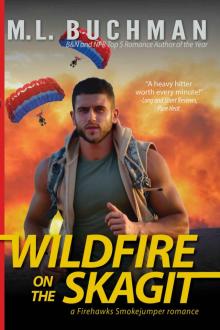 Wildfire on the Skagit (Firehawks Book 9)
Wildfire on the Skagit (Firehawks Book 9)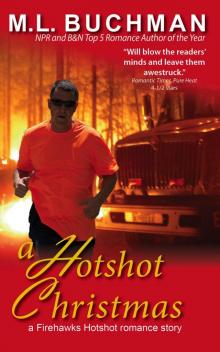 A Hotshot Christmas
A Hotshot Christmas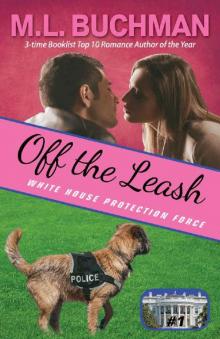 Off the Leash
Off the Leash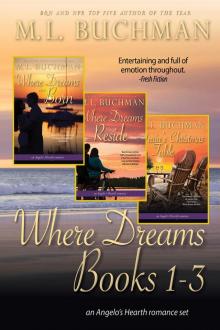 Where Dreams Books 1-3
Where Dreams Books 1-3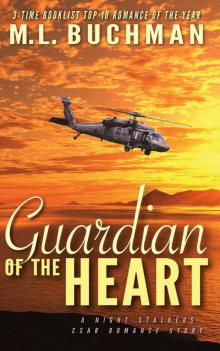 Guardian of the Heart
Guardian of the Heart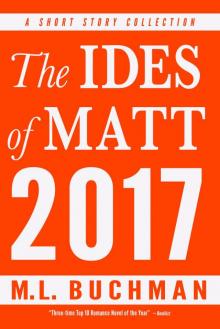 The Ides of Matt 2017
The Ides of Matt 2017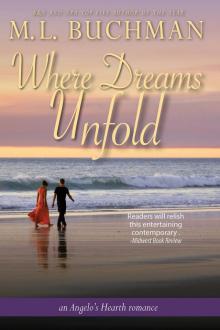 Where Dreams Unfold
Where Dreams Unfold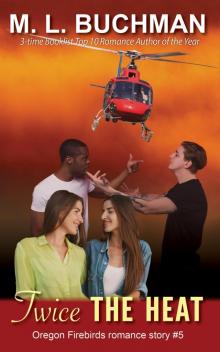 Twice the Heat
Twice the Heat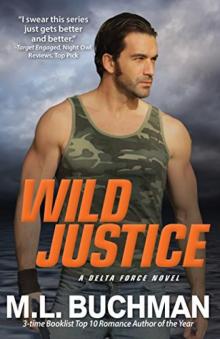 Wild Justice (Delta Force Book 3)
Wild Justice (Delta Force Book 3)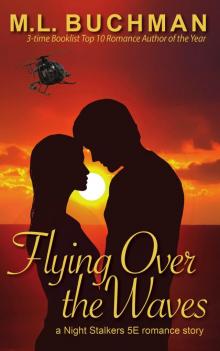 Flying Over the Waves
Flying Over the Waves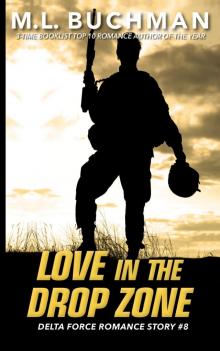 Love in the Drop Zone
Love in the Drop Zone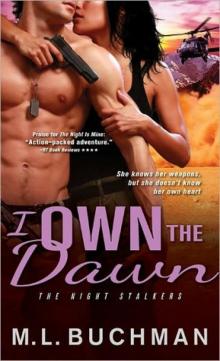 I Own the Dawn: The Night Stalkers
I Own the Dawn: The Night Stalkers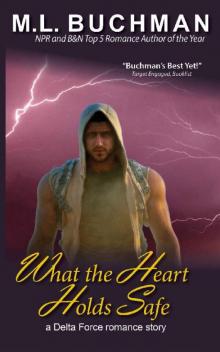 What the Heart Holds Safe (Delta Force Book 4)
What the Heart Holds Safe (Delta Force Book 4)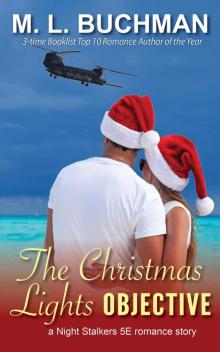 The Christmas Lights Objective
The Christmas Lights Objective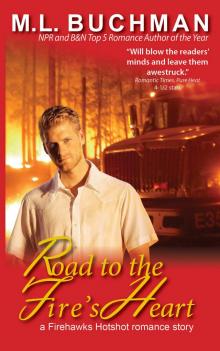 Road to the Fire's Heart
Road to the Fire's Heart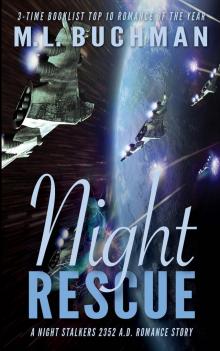 Night Rescue
Night Rescue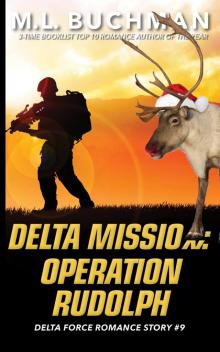 Delta Mission: Operation Rudolph
Delta Mission: Operation Rudolph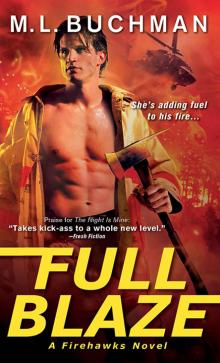 Full Blaze
Full Blaze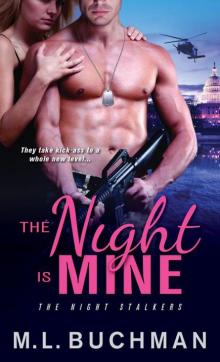 Night Is Mine
Night Is Mine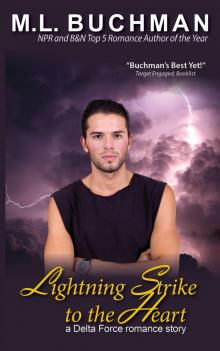 Lightning Strike to the Heart
Lightning Strike to the Heart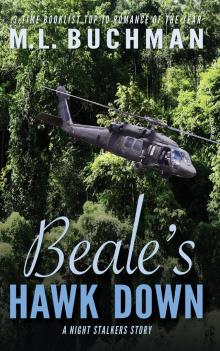 Beale's Hawk Down
Beale's Hawk Down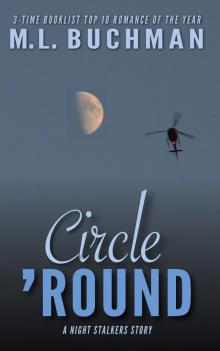 Circle 'Round
Circle 'Round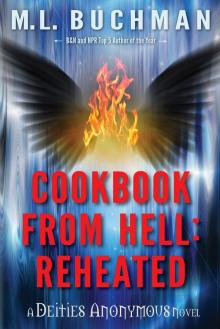 Cookbook from Hell Reheated
Cookbook from Hell Reheated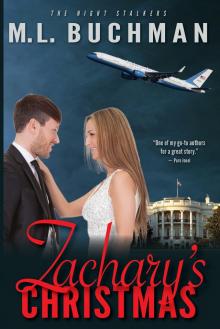 Zachary's Christmas
Zachary's Christmas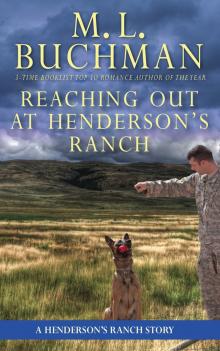 Reaching Out at Henderson's Ranch
Reaching Out at Henderson's Ranch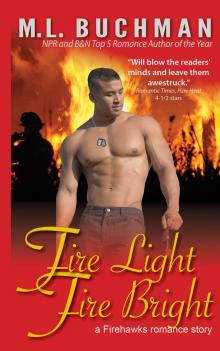 Fire Light Fire Bright
Fire Light Fire Bright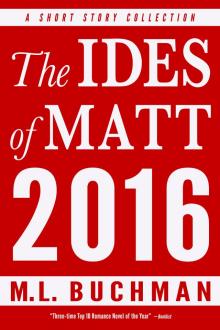 The Ides of Matt 2016
The Ides of Matt 2016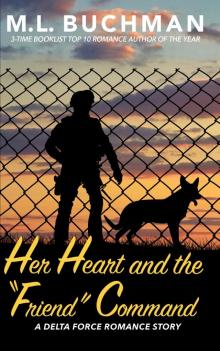 Her Heart and the Friend Command
Her Heart and the Friend Command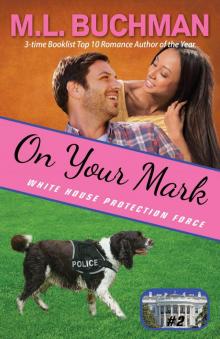 On Your Mark
On Your Mark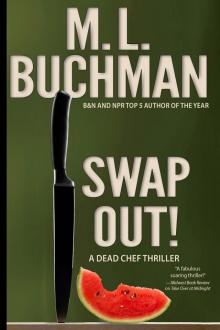 Swap Out!
Swap Out! Heart of the Cotswolds: England
Heart of the Cotswolds: England The Phoenix Agency_The Sum Is Greater
The Phoenix Agency_The Sum Is Greater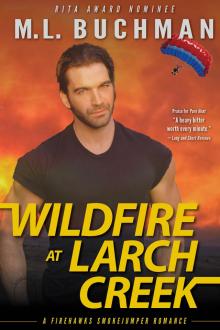 Wildfire at Larch Creek
Wildfire at Larch Creek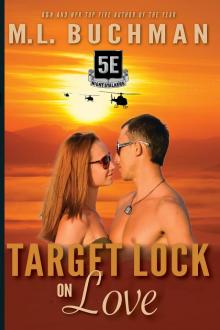 Target Lock On Love
Target Lock On Love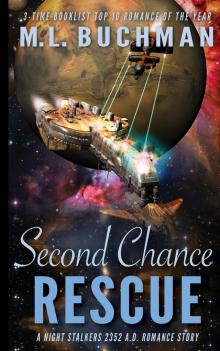 Second Chance Rescue
Second Chance Rescue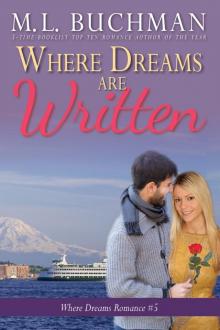 Where Dreams Are Written
Where Dreams Are Written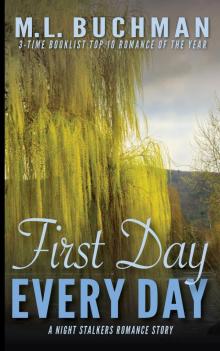 First Day, Every Day
First Day, Every Day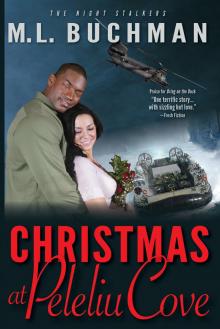 Christmas at Peleliu Cove
Christmas at Peleliu Cove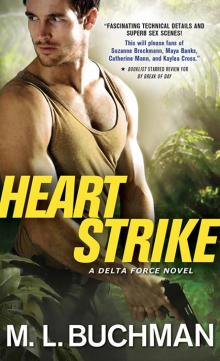 Heart Strike
Heart Strike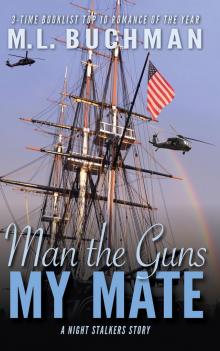 Man the Guns, My Mate
Man the Guns, My Mate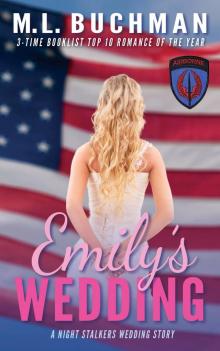 Emily's Wedding
Emily's Wedding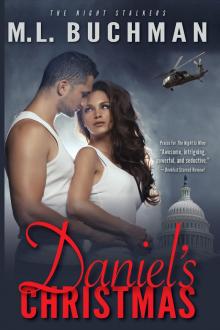 Daniel's Christmas
Daniel's Christmas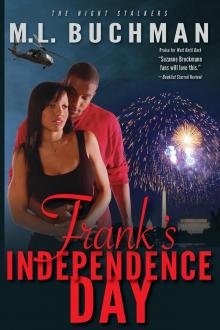 Frank's Independence Day
Frank's Independence Day The Phoenix Agency: The Sum Is Greater (Kindle Worlds Novella)
The Phoenix Agency: The Sum Is Greater (Kindle Worlds Novella)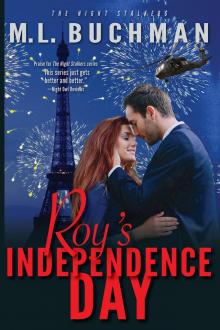 Roy's Independence Day
Roy's Independence Day